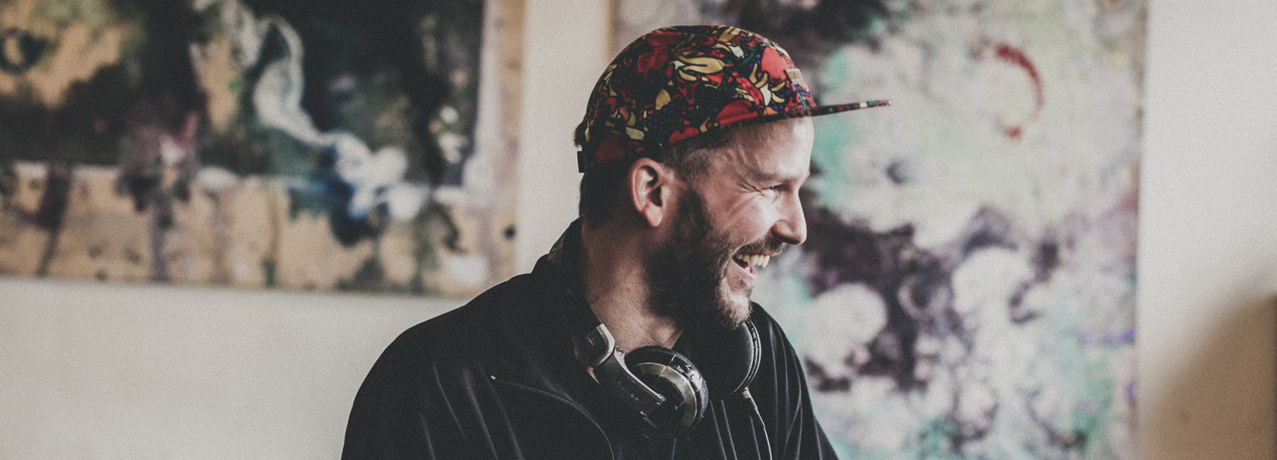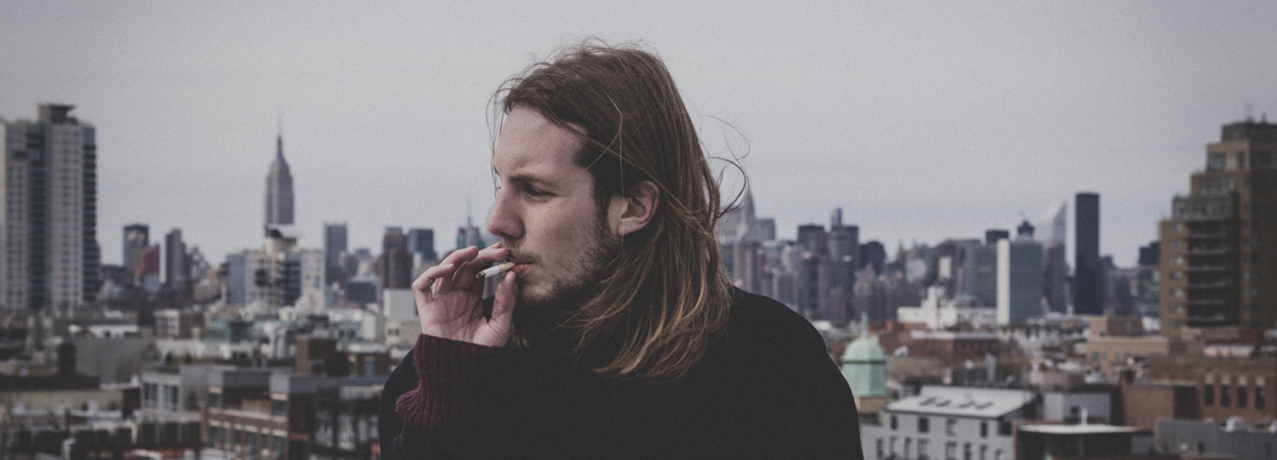ROLL CALL
- Justin Strauss
- Wes Posvar
- Miyuki Gorman
- Max Pask
- Sabrina Tamar
- Luke Jenner
- Gorman Dan
PHOTOGRAPHY
How did you get into music? What are your earliest memories as a listener?
I started with classical music, like many kids.Your parents tell you to learn the piano, so I learned the piano. Sometimes you don't want to practice when you're a kid, but now i'm infinitely grateful that my parents pushed me. I learned writing, reading music very early. I didn’t listen to any music except for classical music until I was 16, maybe 17. Basically when I started to date girls, I started to listen to more pop music.
At first, I was listening to what everybody was listening to at that time. For my friends, that was Led Zepplin, Jimi Hendrix, Depeche Mode, U2, that kind of stuff. Eventually, I started to buy magazines and get into indie rock.
My favorite band was Pavement back then, and the Pixies and Sonic Youth. Also I was listening to a lot of blues at that point. I don’t know why I got very obsessed with blues, but very Delta Blues – it’s the very basic blues from Mississippi – Like Robert Johnson.
How would you describe your music back then?
It was just a hobby. I was reading magazines, listening to radio shows. I would come home after class and record every song I liked on the radio. People used to do that. Instead of downloading it for fees, you would tape your favorite songs and make compilations.
Then, I went to business school and started to go to Paris with a friend. We would go to Rough Trade. That’s when they opened the shop up near Bastille. It was run by a guy called Jerome Mestre, and the people in the shop were Ivan Smagghe and Arnaud Rebotini. Ivan would be the most unfriendly guy. Everyone was super scared to go there and buy records, because he would be like: “Why do you want to buy this? This is shit. You have no taste.” I started to discover electronic music through there. And eventually became friend with Ivan later.
Also, through the magazines I was reading: Les Inrockuptibles, Rock and Folk. I remember they made a special issue of Rock and Folk with the 100 records you need to have. At the end, from the '90s, there were one or two house music records, maybe Larry Heard and Motorbass. So I checked those records and started to be very interested in that. Pansoul by Motorbass is definitely the record that got me into club music, I was fascinated by the sonics and sensuality of that record. At the same time, I was also listening to a lot of jazz, which brought me to hip-hop because of the samples. I was trying to figure out which records were in what. I was listening to hip-hop, electronic music and drum and bass.
So you started to buy records to play for other people? Or was it still just for you?
It was a bit at the same time. Actually, what brought me to DJing was that my younger brother Nils was listening to techno and going to free parties, like raves. He bought turntables at home and I used his turntables to mix records. It took me weeks to beat match the records. I thought it was impossible. But then I figured it out and started to DJ at school. There were parties every week and sometimes we would have a room inside where we would play our music. Just a few friends, nobody cared about that kind of music. I even remember – very taboo today – but I was playing drum and bass and there was this guy toasting, reggae style.
At the same time, when I was in school, there was this guy who knew I was into electronic music and a piano player, and he had a synthesizer he didn’t use. He said, “I can give you my synthesizer and maybe you can do something with it.” It was a very cheap synthesizer, but it had all sorts of sounds, like drums, bass…
Do you remember the model?
It was a Yamaha, but really the cheapest '90s Yamaha you can get. But I discovered that I could sequence stuff and program the drums and bass. I didn’t have any idea how electronic music was made. When I figured out it was that simple, I was like: “Oh my god, this is amazing. This is what I want to do.” I started to make music with just this keyboard, bringing it everywhere, on vacation, I would play all night long. The first time I decided to go see a label, I brought the synthesizer with me and played this song. I remember it was a label called Pamplemousse and these guys are looking at me like: “Who is this crazy guy? His synthesizer, this is nuts.” But I had no idea about anything.
Eventually, I understood that this was really a cheap synthesizer, so I got a better one, but still cheap. Roland XP 50. I started to record demos on cassette. I sent a free cassette to three labels, I think, F Communications and Warp – very ambitious – and Versatile. FCom replied first. They were polite, so said, “Ah, it’s cool, but we have too many stuff.”
And then I hear from Versatile a bit later. He said, “There’s this song on the tape” – because on the tapes I sent, there was one jungle track, one house track, one abstract hip-hop thing. It was all over the place. And there was this one track that was very jazzy. He said: “This is very interesting. If you do something like that, I will release it.” Basically, I did a whole record just sampling jazz records from the '60s. Versatile released it on their sublabel, Future Talk. And that was the first record.
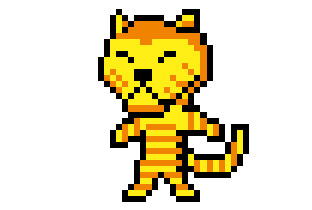
Tigersushi
Did Tigersushi come much longer after?
You release a record and people start asking you to play. So I started to DJ more like a real DJ. When I finished school, I didn’t think I could make a living by just making music. So with a friend, we decided to create Tigersushi. I thought it was something I could live from, but I was completely wrong. I never got any money from it. The name Tigersushi comes from one of the tracks on the first album.
Can you explain the concept of the website?
The Internet was starting to explode and we said, “It’s a shame there’s nothing online about the music we like." We are frustrated with the magazines we read because it’s all ads and it’s promo and it’s bullshit. "So, let’s do our own magazine.” And then it became more than a magazine. It was a more ambitious project to have an infinite database of music, a bit like this website allmusic.com. It would be a database with content, reviews and streaming, like Spotify, and recommendations, like Amazon, and web radio.
It was sort of working in the beginning. The website was super popular. It was really big for that time.There was not many web radio and none that would show the titles of the songs played with links to more info like on Tigersushi radio. The moment where it started to become complicated was when we wanted to do the streaming thing. Really like Spotify. But it was the time of Napster and illegal downloading. So all the labels were like: “No, we don’t want to do anything on the Internet. The Internet is bad.” So no one would give authorization to stream or license it. We had to find something else and started to release records.
First, it was something to promote the website. We thought, "Let’s put records in the shops, and maybe people will see the website, go on the website, then people will recognize us and maybe the labels will give us authorization for streaming." The website was so much work too, we would receive or buy records from all around the world, take a picture of the sleeve, put it online, enter all the info, write reviews, create links to other records.. It was crazy work. So it was more and more about the label, and we dropped the website at some point, maybe in 2006.
The website started in 2000. I released my second album in 2001, which I consider my first album because it’s when I started to make actually good music that I wanted to do. The first album was more like, "They want me to do this kind of album, so I’ll do that."
I don’t think DJing is just about playing what you want, because then anybody could do it. It’s a balance between communicating with the crowd, getting them to understand what you’re doing and bringing them somewhere else.
So when did you decide your life was going to be focused on music?
When I released my second album. There were more club tracks, especially this one called “Come Into My Kitchen.” It became some kind of underground club hit, played by many people with different styles. So I started to get more gigs. Tiga heard the track and said, “Hey, we want you to do a remix.” I started to make money off of music. I decided to make a lot of music and remixes and tour, and at the same time take care of the label and the website.
When you started to play as a DJ, was it something you enjoyed?
Yes but I started to really enjoy it more later. In the beginning, I think I had the typical default of a lot of DJs in that I didn’t really care about the crowd. I was just trying to play things I really liked and obscure stuff. Nothing you would dance to. Kind of a naughty DJ style. Also, I was playing with Gilbert and these guys who had a very good sense of the dynamics of DJing. I remember, we were in Tokyo in the early 2000s, and we were playing with Gilb’R. I started to play some stuff and there was no real vibe. He came and said: “Let me take over for just a few minutes. I’ll show you how to handle.”
I understood, slowly, what DJing was about and it became more and more enjoyable. I don’t think DJing is just about playing what you want, because then anybody could do it. It’s a balance between communicating with the crowd, getting them to understand what you’re doing and bringing them somewhere else. You're like a shaman trying to hypnotize the snake. It took me a long time to understand that.
What is your approach now? Do you prepare your sets?
Now I mostly use USB sticks, except on special occasions (like this one) or when I'm in my hometown, so it’s different because I have a lot of music with me. But I spend an awful amount of time arranging my library, tagging my songs. I have folders for albums, years, moods. Every time I play somewhere, I prepare a track list. Basically what I used to do with my vinyls. Before a gig, I take a few records, put them in the bag, take it with me. I do the same thing. I prepare 100 tracks, maybe less, that I think I’m going to play. But if I think, “Oh, I'm going to play African disco now,” I can do it because everything is there.
It’s a mix between preparation and improvisation. Most of the time when I prepare a playlist before playing somewhere, the vibe is different. It’s very hard to predict what you’re going to play unless you know the club and you’ve played it three or four times. There are so many parameters. Just the sound itself is a huge parameter. Certain types of music will work on a certain soundsystem, some won't. Like trying to play deep techno on a soundsystem with no subs will never work, whereas a mid-rangy, rock sounding sound system is great for disco..
Do you feel pressure when you play sometimes or are you really comfortable?
I always feel pressure. I feel pressure even more than before, I think. Because you never know how it's going to be. If you have one set and you play it all the time and you know it works, maybe you’re not stressed. But I never do that. I don’t understand how you could actually do that. With the USB, you have the history of your sets. Sometimes I go to the history and I can see, "Oh I played that and it worked really well at peak time." You can play the same peak time thing and it’s a total failure. That’s the beauty of it. That's what I really like about DJing.
It’s very different from live shows, where you don’t have the time to feel exactly what’s coming back. DJing is more like a dialogue. You have to create this moment in this space and time, where if something happens, it’s like a communion.
Is there a DJ that inspires you now?
I don’t listen to a lot of other DJs. I know the DJs who inspired me when I started: Gilb’R and Optimo and DJ Harvey.
In the hip hop and R&B scene, they have such a weird process of making music where there are sometimes over 100 people involved in making one track, that it creates something really really weird.
Is there a particular set that’s your most memorable?
There was one I did two or three years ago in Sao Paolo, outside a museum in the afternoon. I played only disco and slow stuff, but people were so into it. Every time I go to Brazil, people tell me, “I was there.” Because there were like 4,000 people and everyone interested in music was there. I could feel something was happening, something out of the ordinary.
Recently, I went back for this New Year’s event, and it was also a crazy experience. I think people in Brazil don't care about categories; they just enjoy music.
Also recently, when I did the Beats in Space shows in Japan with Tim Sweeney, the one in Sapporo was amazing. The best sound I’ve ever heard.
What do you think about it becoming easier for anyone to be a DJ?
It doesn’t really bother me. I think all debates over technical aspects are usually bullshit because they tend to simplify things - vinyl over CDJ for instance, you can't say one is better than another in all situations if you really know what you're talking about. Now you can also automatically beatmatch records. I like the fact that when you’re not using automatic beat matching, some things are not perfectly timed. That is the energy of the mix. Erol Alkan is very good at that. When he does his Disco 3000 thing, the beat matching is very hard in disco sometimes. When things weren’t nice, that’s also the energy of the music. It’s something you communicate to the people. If everything’s perfectly synced and you can’t hear any transition, it’s boring.
I think the problem is that you have a lot of people that play shit music and it’s polluting the DJ world. People who don’t spend the time to find their own style and look for records. They just go on Beatport or big blogs and download the Top 100. Music is everywhere. You have to be really lazy to not look for music.
How do you look for new music?
When I travel, the first thing I ask is if there's good second hand records stores around. I don’t go to record stores much when I’m home; I don’t know why. I also spend a lot of time procrastinating on the web listening to random things, checking the promos I receive when i'm motivated, just like anyone else I guess. Music is everywhere, especially online. You have to be really lazy to not look for music.
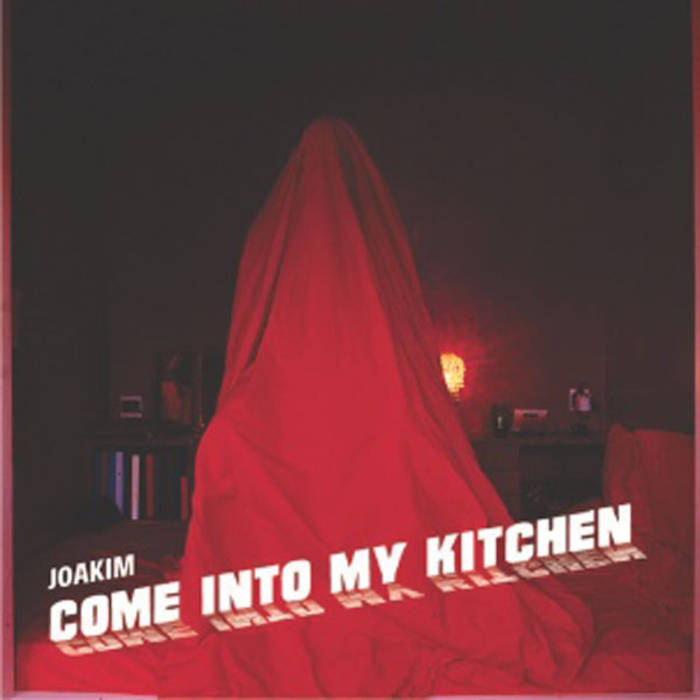
Joakim
Come Into My Kitchen
You started recently a record label named Crowdspacer which is more club oriented. What can you say about it ?
For some reason Tigersushi doesn't really have a "club music" image so I thought I needed to create something new, a playground where I can create tracks that I would like to play that I wouldn’t do for my albums, sometimes very basic techno tracks.
It’s also a space to collaborate with other people, like the first release with Kindness, and we did a few releases with Crackboy, with Alexis Le Tan. I also did some solo stuff. I want it to be simple, so I don’t spend too much time doing the tracks. I want to keep it kind of rough. Then it’s straight to the mastering. No promos, straight to the distributor, limited pressing and then it’s gone. I wanted to have something very fast and fresh.
I’ve never played in Ibiza. I’d like to do a balearic set in Ibiza, but my own definition of balearic.
How do you proceed from there?
We decide the number of records that we can sell, then I don’t have to think, “We have this stock for this record.” I prefer selling everything and there being more demand than having one that's not working and then you have all this stock and you spent too much money and you don’t know how to do the next one. It’s a no brainer situation.
Why don't you just put all the music you produce online?
This is more of a marketing thing. Unfortunately, the vinyl market is mega-snobby and people buy vinyls when they know it’s rare. Even me. We all do the same thing. We feel like it’s something special and that not everybody is going to have it. As soon as you put it online, it’s different. It’s not the same feeling. But soon-ish, when we have enough releases, I’m going to do some sort of compilation online of some of the tracks on Crowdspacer. I’m sure you can find some of the tracks online if you try.
Which electronic artists blow your mind?
Sometimes I’m more fascinated by mainstream artists than indie artists.
When I hear underground music, I can see how it was made. There is less mystery to me. When I listen to a very well-made, mainstream collection, I’m like, “Wow, how was this made?” For instance, I can’t wait to hear Frank Ocean’s new album.
In the hip hop and R&B scene, they have such a weird process of making music where there are sometimes over 100 people involved in making one track, that it creates something really really weird. I was super blown away by the Kendrick Lamar album, for instance. Otherwise, I was obsessed with Jai Paul, like everyone else. In the "dance" world, i'd say i'm quite into Barnt, Daphni, some L.I.E.S affiliated artists, this new label in France called NOUS, Jam City…
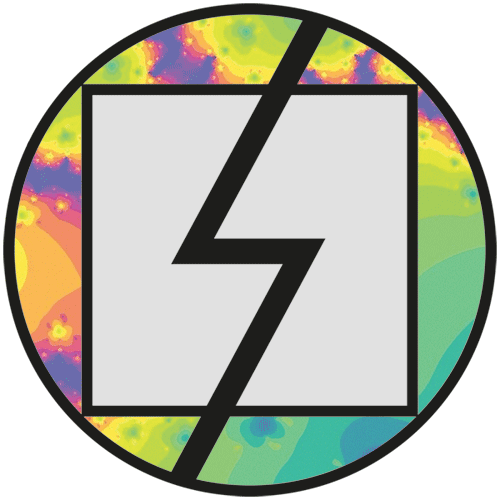
Crowdspacer
When you listen to more underground music, are you not impressed by the production skills?
Not impressed is maybe strong. But it’s less fascinating, somehow. In the underground music world, there’s a lot of stuff where suddenly there’s a big following, but I’m like, “this is kind of cheap,” you know?
In matter of dance music, which records labels do you follow frequently?
I get a lot of promos, so I don’t look a lot for new stuff because just listening to the promos takes me so much time. The Rush Hour mailing is a lot of good stuff because they also do L.I.E.S. , Antinote and they do Crowdspacer.
For Crowdspacer, Are you receiving any demos from people?
We released this track by this Japanese guy who is now releasing a lot of stuff called Keita Sano. The thing is, I don’t listen to many promos because I get too many. There’s a problem with how promos are sent these days. SoundCloud, basically. Before, people would have to send a CD, so they have to find your address, burn a CD, write something in handwriting. There was a lot of effort and personalization. You would notice very quickly if something is interesting or not. That’s how we found Principles of Geometry, for instance, because they sent a demo and the artwork was really nice and different. But now I get dozens of sampler emails sent to thousands of people every day. So I’m like, “If this guy is sending it to 1,000 people, I don’t care.”
I know visuals are important to you.
I grew up with Warp, Mo Wax, Factory - those labels were so perfect image-wise, from the music to the record sleeves to the websites. Those were models for Tigersushi because we also wanted to have that attention to every detail, even when we send promos, there's often a funny unusual detail.
The mix you did for us, how did you approach it?
Since you said it’s not a club mix, I followed that rule. I’m in the middle of unpacking my records, and it’s mostly experimental music that I listen to when I’m at home. Avant-garde, industrial, exotic music. Things like that. I basically tried to make a selection out of those records. There’s so many millions, billions of possibilities when you do a mix. I like when somebody asks me to do a mix where there’s a theme so I can also look for new music. It’s a way to dig for new stuff. I often do that. I get interested in one specific genre or label and try to find everything about it. I guess that’s the basic DJ.
Is there a place you would like to play?
I’ve never played in Ibiza. I’d like to do a balearic set in Ibiza, but my own definition of balearic.
So why haven’t you played in Ibiza yet?
There's a kind of division in the DJ world where there are people who DJ, but for the most part don’t produce themselves. They spend their lives touring and DJing and partying. It’s a whole lifestyle. And I think those are the ones that play in Ibiza. I call them "the DJ's DJs". Then there are the producer DJs like me, who are not considered as much a DJ, although it’s kind of stupid. I think that’s why I’ve never played in Ibiza. People don’t see me, even after 15 years, as a DJ’s DJ. Although I love playing techno sides, I would never play two hours of straight techno. My two favorite moments to play is the warm up and the late sets. When it’s late, I love playing trippy, long tracks. Follow the drug state of the people.
Do you take drugs?
No, but somehow I feel like I can really connect well with people on ecstasy when I play. I like a crowd on ecstasy.
Talking about famous place to play, what do you think about the Berghain?
Berghain has been a major place for the club world and DJs for a long time. It’s the most famous club in the world these days. They have such tough policing at the door, which people complain about, but that’s exactly why it’s good. They don’t let too many tourists in. It’s always a great mixture of people. That’s the most important thing about a club. You want a good party. That’s how the best clubs happen. It’s not just the DJ. It’s not just the sound. It’s who’s in the club. That’s what makes Berghain stand out.
The clubs you played in New York...
It’s nothing like it. Money is a big problem. When there’s a club that's big, they have to make so much money that they have to let in the douchebags. Not a good atmosphere. So then you have to go to very underground places, but those are shut down by the police. Or they can't keep the space or they don’t have a good sound system. There’s not an ideal situation in New York right now.
A few years ago, I saw you play at MoMA PS, how did you feel about it ?
That’s one place where the crowd is very cool, very mixed. Although now there’s a lot of hipsters. I played twice there, the first time in 2002; then the crowd was great. You had all the people from Queens come in, families. It was fantastic.
REFERENCE LINKS
- Pavement
- Delta Blues
- Robert Johnson
- Rough Trade
- Ivan Smagghe
- Arnaud Rebotini
- Les Inrockuptibles
- Rock & Folk
- Larry Heard
- Motorbass
- Pamplemousse Productions
- Roland XP-50
- F Communications
- Warp
- Versatile Records
- Tigersushi
- Tiga
- Gilb’R
- Optimo
- Dj Harvey
- Tim Sweeney
- Erol Alkan
- Crowdspacer
- Kindness
- Crackboy
- Alexis Le Tan
- Frank Ocean
- Jai Paul
- Rush Hour Records
- L.I.E.S.
- NOUS
- Jam City
- Antinote
- Keita Sano
- Principles of Geometry
- Moma PS1
